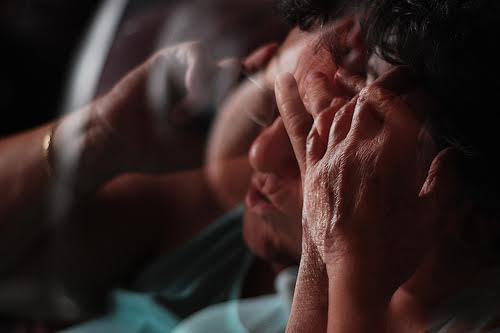April 4th, 2017
Police Suicide— And The Solutions – By Andy O’Hara
Reprint From


As of the end of the first quarter of 2017, 29 police officers have died of police suicide. Nationwide, an initial but significant increase in police suicide over the same period last year. These are just the ones we know of and are not “hidden.” This slice emphasizes the problem we face in police suicide, especially so early in the year. Over 100 police officers committed police suicide during 2016.
But while recognizing there is a “problem” and a tragic story behind each of them. The challenge we have on our hands is finding a SOLUTION to police suicide. Certainly, hiding police suicide from view does nothing except pretend the problem doesn’t exist. So what is the solution to the problem of law enforcement suicides? In this highly stressful environment, how do we prevent them from happening?
In the past, of course, there was nothing. The hiding of suicides was rampant in police departments. Everything was handled in whispers. Often, the squad itself knew nothing of what had happened. The stigma was powerful, resulting in hushed funerals and minimal attention given to the families. It was not unusual, in fact, for spouses to be blamed for the death. Things like the impacts of job stress and work-related trauma were never considered or discussed. In too many departments, this kind of stigma remains—but progress is being made.
Here, instead of the problems, are some of today’s solutions to suicide and a pathway to good mental health in law enforcement.
POLICE SUICIDE & PEER SUPPORT PROGRAMS
Many departments, sensing the limitations of mere “suicide prevention training,” have taken an important step and established peer support programs, which have grown in popularity across the country. In a typical program, officers with interpersonal skills and credibility are identified and trained to be a resource to which other personnel can turn with their problems and issues. Depending on the policies and limitations of the department, considerable confidentiality is assured for discussions related to job stress, substance abuse (common in police work), family issues and a wide variety of other problems facing the officer. Easily accessed, the peer support officer is particularly skilled at discerning the signs of potential self-harm and can refer the officer on to more advanced and professional help.
CHAPLAINCIES
Many departments have bolstered their department’s program by utilizing volunteer chaplains, which have also been met by success. Often working together, they and peer support officers form an effective resource to which officers can turn in times of trouble.
EMPLOYEE ASSISTANCE PROGRAMS
A great many departments utilize the services of an employee assistance program (EAP), often through a county-wide network. Here, generally, one can go and get the services of a licensed therapist/counselor for a specified number of visits (generally three to six visits per year). One advantage is that it is a free program. EAP’s take a “broad brush” approach, covering a wide variety of problems like substance abuse, financial problems, marital issues, child rearing difficulties and many others, including dealing with daily stressors.
DEPARTMENTAL PSYCHOLOGISTS
A next step, and another effective one, has been the employment of one or more departmental psychologists for a department. Most commonly, the psychologist screens new recruits, gives presentations to the squad, goes on ride-alongs and is there to serve personnel that are encountering problems or issues. Psychologists can often be valuable resources, both for the department and the individual officer when problems arise. One of the advantages of departmental psychologists is (when adequately staffed) that they are readily available and are commonly known by the squad.
OUTSIDE THERAPY
Some officers prefer to go beyond their department and seek out a therapist or psychologist at their own expense (often doing so on their own medical plan). This has its advantages, allowing an officer to seek out and select a counselor that he is satisfied is a good “fit.” Such a visit may be with someone who has prior law enforcement experience or specializes in areas like work related stress and trauma. Confidentiality is more assured than with other resources.
NATIONAL SUICIDE PREVENTION LIFELINE
If things get out of control and you feel suicidal, we urge you to call the Suicide Prevention Lifeline at 1-800-273-8255. You’ll be connected to someone who’s local to you, is professionally trained, and will both listen and connect you with resources for further help.
CONFIDENTIALITY
This is the really big fear—that seeing any of the above will result in a violation of confidentiality and that the information will be shared with ones department. Before getting into specifics with any of the above, ask them first what the limitations are on privacy. This can vary from place to place as far as peer support, EAP, departmental psychologists or even outside therapists. Don’t be shy about this. Not only will this relieve your fears for your job, but insure that you’re comfortable during the session.
Good mental health is the responsibility of everyone, including the officer on the beat. A cop who is struggling with marital issues, stress or trauma is a danger to himself, the public and fellow officers who are depending on him to be at his prime. This is one of the most toxic, caustic jobs in the world and the above resources are there to help you contend with it. We recommend, in fact, that an officer take advantage of at least one of the psychological health resources listed above once a year for a “mental health check-in,” just to see what has been working well and what could work a little better. The idea is that, rather than waiting to “get help when you need it,” it’s better to seek it before that time comes.
There is such a thing as a full, satisfying career in police work—and a good retirement at the end. For what you go through emotionally as police officers, you deserve no less.
Tags: died, officers, Police, Suicide

Comments are closed.